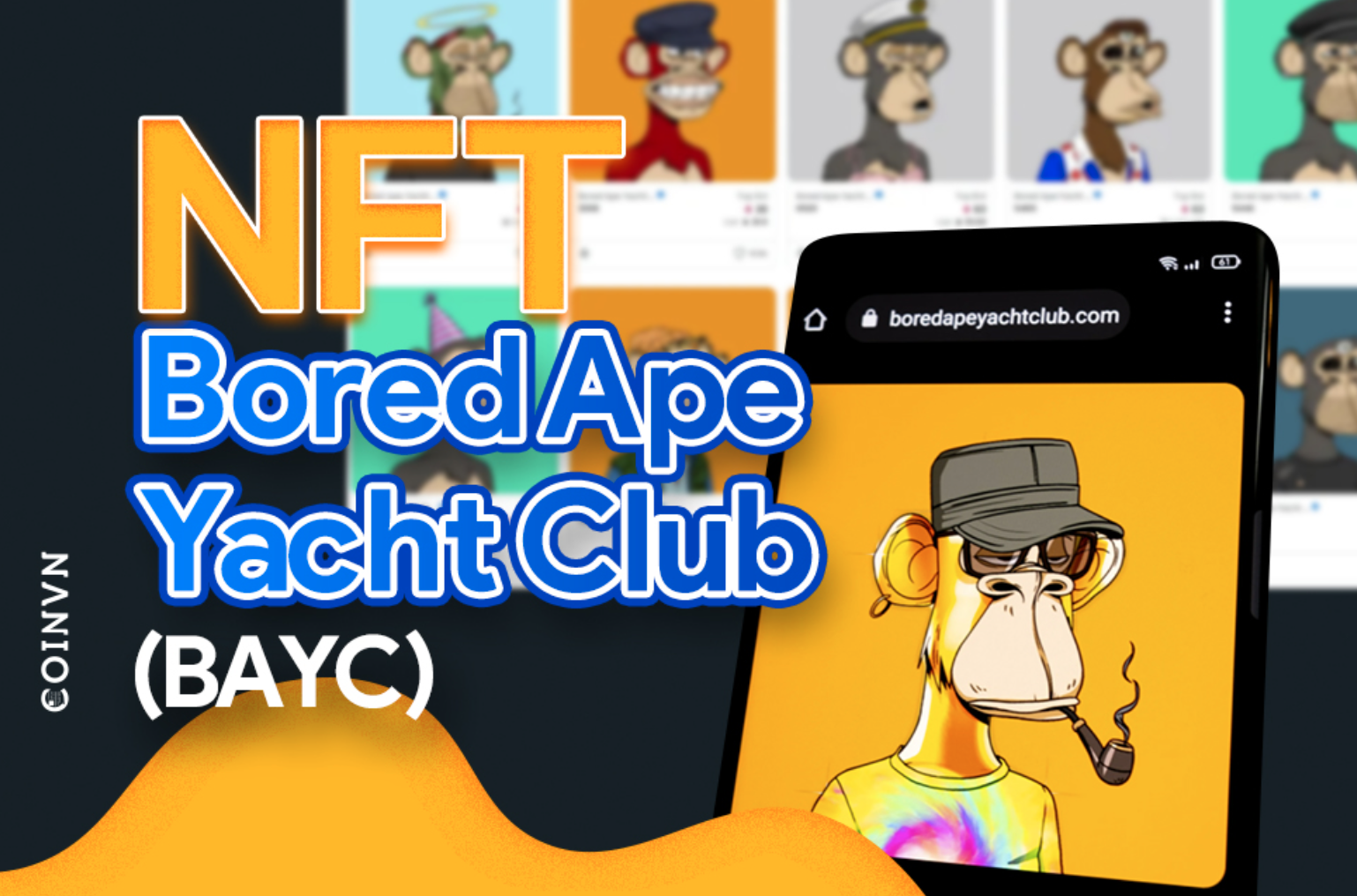The concept of blockchain is no longer strange to those who are interested in technology as well as learn about the crypto market, and blockchain is now considered as a “super technology” with countless outstanding applications and features, opening up many opportunities for growth. The DAO was born in the wake of the rise of blockchain along with the increasing demand for “decentralized” properties.

The birth of the DAO is reasonable because in an era where the big players in many fields have too much financial power, the decentralized platform will be the way for investors and consumers to understand. bright. DAO helps participants find “rights” that they have not been able to touch for a long time.
So, What is DAO in Crypto?
DAO (Decentralized Autonomous Organization) is a decentralized self-governing organization. Unlike traditional organizations (like Facebook, Google, …), by applying code-coded rules, they can operate independently without human intervention.
To be fully decentralized, the DAO is not affiliated with any particular country, even though it uses the Ethereum network. DAO developers believe they can eliminate human error or manipulation of investor funds by placing decision-making in the hands of an automated system, and a community-resourced process. copper.
Powered by Ether, the DAO is designed to allow investors to send money from anywhere in the world anonymously. The DAO ensures assets are immediately distributed to the right parties without any additional management or paperwork.
In order to attract the funding needed to run a DAO, the protocol will issue governance tokens to investors. This token not only represents a user’s membership, but it is also the voting power (similar to shareholder rights) needed to make changes to projects.
The DAO launched in late April 2016 thanks to a month-long, crowdfunding token sale. The event raised more than $150 million in funds.
How DAO works?
Initially, Bitcoin was considered the first fully functional DAO, as it had a pre-programmed set of rules that worked automatically and was coordinated through a distributed consensus protocol. Since then, the use of smart contracts has been enabled on the Ethereum platform, which has brought the creation of DAOs closer to the masses and shaped their current appearance.
But what does a DAO need to function to its fullest? First of all, it needs a set of rules to operate on. Those rules are encoded in the form of a smart contract, essentially a computer program, that exists automatically on the Internet, but at the same time it also needs people to perform tasks that it cannot do on its own.
Once the rules are established, the DAO will enter the funding phase. This is a very important part for two reasons.
First, a DAO must have an internal asset class, tokens that can be used by the organization or used to reward certain activities within it. Second, by investing in a DAO, users gain voting rights and subsequently the ability to influence how it operates.
Once the funding period is over and a DAO is deployed, it becomes fully automated and completely independent of its creators and anyone else for that matter. They are open source, which means their code can be viewed by anyone. Furthermore, all financial rules and transactions are recorded in the Blockchain. This makes the DAO completely transparent, immutable, and indestructible.
Once the DAO is up and running, all decisions about where and how to spend it are made through consensus. People who have purchased shares in the DAO can make recommendations regarding its future. To prevent the network from being spammed by proposals, a deposit may be required for implementation
The stakeholders then vote on the proposal. To take any action, a majority needs to agree to it. The percentage required to reach the majority can vary depending on the DAO, as it can be specified in its code.
Basically, DAO allows anyone to exchange money with anyone in the world. This can be done in the form of investments, charitable donations, fundraising, borrowing, etc., all without intermediaries.
There is a huge potential problem with the voting system that even if a security flaw is discovered in the original code, it cannot be fixed until it is elected by a majority. While voting is taking place, hackers can exploit a bug in that code.
Finally, it’s important to note that a DAO is not capable of creating a product, writing code, or developing a piece of hardware. Instead, a contractor can be hired to perform a necessary task.
This appointment is made through a similar voting process, while the smart contract will ensure prompt payment upon the correct completion of the task.
Advantages and Disadvantages of DAO
Advantages
- Transparency: anyone has the right to vote, decide on funding, and be involved in other actions.
- Easy to join: members all over the world can contribute to projects. This helps DAOs reduce the barriers to entry compared to other companies.
- Cheaper: the concept has its roots in DeFi and there are a lot of tools – which can be used like Legos, so there are very few times when projects need to be rebuilt from scratch.
- Collaboration: giving everyone a common source of knowledge on a proposal and allowing professionals to invest in the ecosystem they’re building.
Disadvantages
- Security: The problem with smart contracts, once DAOs have been deployed, it is very difficult to change, operations must take place exactly as specified in the smart contract. In addition, the security of smart contracts is also an important issue, typically The DAO hack.
- Legality: The legal framework for the DAO is really unclear. If the DAO is not legally convincing, it will create a big barrier to the application of the DAO because the participants will be held legally responsible.
- Bad Decisions: DAOs allow members to vote democratically. Many decisions are complex and academic, but many voters may not understand or do not know, what they are voting on. This can lead to bad decisions because most people have no knowledge of the decisions involved.
- Often Delayed: In addition, in emergencies, having to wait for a vote to pass can have adverse consequences for the DAO. For example, in the case of Maker when the market crashed in March 2020, if it was still waiting to vote before implementing measures, the property damage would be huge.
- Privacy: Everything being transparent on-chain is also not entirely a good thing, the fact that proposals must be put on-chain for voting before being implemented means that the development plan is completely public. and competitors can know the future direction of the project.
- Centralized entity: An entity or organization that has a higher voting power than other members. Create a centralized feeling right in the voting of the protocol.
Types of DAO
Token-Based DAO
Token-Based DAO as the name suggests, tokens play an important role in the operation of the DAO. This is the most common type because tokens are the lifeblood and are present everywhere in Crypto:
- From blockchains like Bitcoin, and Ethereum: Miner ensures the security of the network in return for token rewards.
- Until protocols like Maker DAO, Uniswap, Sushiswap, etc.: Token holders have the right to vote for decisions in the protocol.
The advantage of this model is that the scalability is very good when anyone can own the token, but it is difficult to utilize resources and come to a common consensus.
Organization (Shared-based DAO)
Organization (Shared-based DAO) represents a group or organization with a common goal in a certain field, typically venture DAOs that focus on investing. Members will use shares to vote on the organization’s activities.
For example The LAO, a VC DAO in which capital contributors will receive a proportion of shares in proportion to their contributed capital and will have the right to vote or propose a project for other members of The LAO to vote, consider whether to vote or not. investment or not.
Unlike Token-based DAO where anyone can access the token and participate in the DAO, Shared-based DAO is usually permission and requires participants to meet certain conditions. This model has the advantage of being easy to manage and resources to be concentrated, but it is difficult to scale.
Note: DAOs in the same field can use completely different models. For example in the field of Ventures DAO, The LAO uses Shared-Based
Featured DAO Applications
Ethereum: Ethereum is a DAO with Proof of Work, and Proof of Stake with Ethereum 2.0, which means that miners will enjoy incentives and block rewards in return for miners needing to perform operational activities such as mining new blocks. , confirm transactions, and ensure network security.
Compound: Compound is a very successful protocol for on-chain governance. By allowing token holders to vote on proposals in the protocol, along with the launch of the COMP token on June 15, 2020, Compound has a clear growth plan from which to continue. maintains its position as one of the leading lending platforms.
The Lao: is the most prominent project among Decentralized Investment Funds, established in April 2020, currently, The LAO has completed 35 investments, most of which are projects on Ethereum such as Gitcoin, Zapper, and Lido Finance. The LAO is the most active of the Decentralized Funds.
Bitshares: This organization prides itself on technology that is ahead of its time by providing self-management with an enhanced voting system, 3-second processing time, and built-in defi platform.
Application of DAO in politics and society
In addition to DAO being applied to cryptocurrency companies or financial activities, it also appears in practical activities in daily life.
With Government activities: DAO will strengthen auditing, voting, monitoring contract performance, bidding, and many processes, etc.
In non-profit organizations: the DAO app will allow individuals to receive donations anonymously and accept members from anywhere in the world. Members can vote on how to use the money raised.
With Audit Firms: DAO improves audit operations by enabling automated project management, improved tracking, and better security.
The future of DAOs?
In fact, the DAO has a long way to go before it achieves full mainstream adoption. Not all DAOs are efficient. The reality is that most DAOs won’t work for a long time.
However, the DAO is arguably the next “big trend” of the crypto market. Billionaire investor Mark Cuban has also said that he sees the value of DAOs in a tweet in May that read: “The future of corporations may be different as DAOs take over legacy businesses, …”
However, there are also many opposing opinions that DAOs break the traditional business structure. As DAOs begin to take over legacy corporations, holdings such as stocks may become a thing of the past.
To sum up, we can see that what is DAO in crypo world and the DAO is developing at a very fast rate and is receiving more and more attention, but there is still much work to be done for the current DAO to be more complete.






